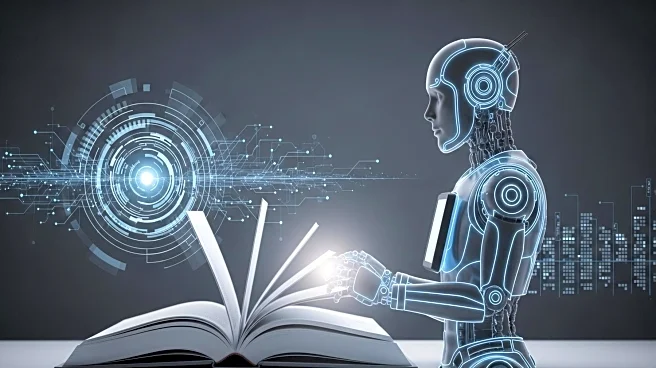What's Happening?
Educators are grappling with the challenge of integrating artificial intelligence into teaching while maintaining personalized learning experiences. As AI tools rapidly evolve, educators are seeking methods to design curricula that emphasize critical thinking, problem-solving, and creativity. The focus is on creating assignments that cannot be easily completed by AI, fostering a learning environment that encourages curiosity and human interaction. Strategies include generative learning models, interactive in-person activities, and assessments that build on personalized class experiences.
Why It's Important?
The integration of AI in education has significant implications for teaching practices and student learning. Personalized learning strategies are essential to ensure that students develop core skills that AI cannot replicate, such as empathy and creativity. By adapting teaching methods to incorporate AI responsibly, educators can enhance the learning experience and prepare students for a future where AI plays a prominent role. This approach also addresses concerns about the potential misuse of AI in academic settings.
What's Next?
Educators will continue to explore and refine teaching strategies that balance AI integration with personalized learning. Institutions may develop guidelines and best practices for using AI in education, ensuring that it complements rather than replaces human interaction. The ongoing dialogue about AI's role in education will likely influence curriculum design and teaching methodologies in the coming years.








